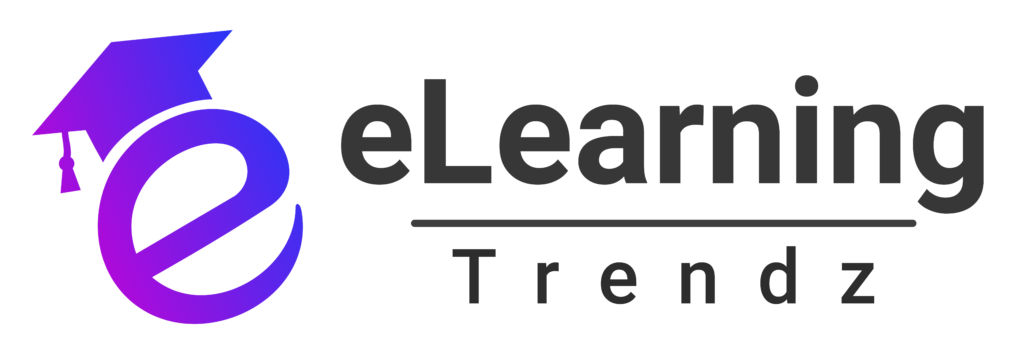Why Remote Workforce Training Needs the Right LMS
Remote work has become the new normal, making Learning Management Systems (LMS) an essential tool for training and development. Organizations must ensure that employees remain skilled, engaged, and current with industry trends, regardless of location. The right LMS enables seamless training, progress tracking, and performance evaluation in a digital work environment.
A well-implemented LMS provides employees with structured training modules, helping them acquire necessary skills without geographical constraints. It allows organizations to maintain consistent training quality while personalizing learning paths based on individual needs. This ensures employees remain productive and informed even in a remote setting.
A robust LMS enhances collaboration and engagement through discussion forums, virtual classrooms, and interactive assessments. As companies expand their remote work policies, adopting an efficient LMS becomes crucial to ensure workforce development, compliance, and performance monitoring.
Top Learning Management Systems for Remote Workforce Training
Docebo
Docebo is a cloud-based LMS that leverages artificial intelligence (AI) to enhance learning experiences. To engage remote employees, it offers personalized learning paths, automated content curation, and social learning features. It enables companies to create customized training programs while ensuring accessibility across devices.
Unlike traditional LMS platforms, Docebo focuses on AI-driven automation to suggest relevant learning materials based on user behavior. This makes training highly efficient and tailored to employees’ role and development needs.
Key Benefits
Docebo’s mobile-friendly platform ensures learners can access content from anywhere, making it ideal for remote teams. Its gamification features help keep employees engaged while encouraging competition and collaboration through leaderboards and challenges.
TalentLMS
TalentLMS is a flexible and user-friendly platform ideal for remote workforce training. Its cloud-based nature allows businesses to create and manage training programs efficiently, and the intuitive interface makes it easy for organizations to onboard employees without technical expertise.
This LMS offers a structured training approach, allowing organizations to build courses using video content, quizzes, and assignments. It also supports blended learning, enabling companies to combine virtual and in-person training for a more comprehensive learning experience.
Key Benefits
TalentLMS allows employees to access training anytime, anywhere. It includes automation features that help organizations track progress and send reminders, ensuring timely course completion. Its compliance tracking tools also make it easier for businesses to manage regulatory training requirements.
Litmos
Litmos is an enterprise-grade LMS that enables organizations to easily train their remote workforce. It provides a scalable and feature-rich platform for corporate training and is known for its fast deployment, allowing businesses to implement training programs quickly.
With a vast content library, Litmos enables organizations to create customized learning experiences while integrating with multiple tools such as Salesforce and Zoom. It helps businesses centralize their training processes, making employee development seamless.
Key Benefits
Litmos offers AI-driven insights, helping businesses identify skill gaps and areas for improvement. Its mobile-responsive design ensures employees can access training material from any device. The platform also supports performance tracking, goal setting, and tailored learning paths for different employee roles.
iSpring Learn
iSpring Learn is a robust LMS designed for businesses that need quick and efficient employee training. It offers an easy-to-use interface and supports a variety of content formats. Organizations can create interactive courses, including video-based training and assessments.
Unlike traditional LMS platforms, iSpring Learn includes a built-in authoring tool, allowing companies to create and modify courses easily. It supports SCORM and xAPI compliance, ensuring compatibility with various learning modules and third-party platforms.
Key Benefits
iSpring Learn provides interactive quizzes and assessments to enhance engagement. Its integration with HR and CRM tools helps organizations streamline training management. The platform’s mobile accessibility ensures that employees can complete training on the go, improving participation and knowledge retention.
360Learning
360Learning is a collaborative LMS that focuses on peer learning and knowledge sharing. It is perfect for organizations looking to foster teamwork in remote settings. The platform encourages employees to contribute to training materials, making learning a collective effort.
Unlike traditional LMS systems that rely solely on static courses, 360Learning integrates AI-powered content recommendations based on learner engagement. It also provides social learning tools like discussion forums and interactive feedback options.
Key Benefits
360Learning enhances engagement through collaborative training programs where employees can share insights and feedback. The real-time coaching feature helps managers support employees throughout their learning journey. Its gamification elements further encourage participation and knowledge retention.
LearnUpon
LearnUpon is a powerful LMS that helps businesses train their workforce efficiently, no matter where they are. Its user-friendly interface ensures smooth training delivery. The platform supports corporate training, compliance tracking, and employee onboarding.
Designed for scalability, LearnUpon allows organizations to create training programs for different teams within a company. It offers advanced reporting tools to help track learner progress and improve course effectiveness.
Key Benefits
LearnUpon supports multi-tenant architecture, allowing businesses to customize training programs for different departments or subsidiaries. Its integration capabilities with HR and communication tools help organizations align training with overall business goals. The automated learning paths feature ensures employees stay on track with their development.
Paradiso LMS
Paradiso LMS is a feature-rich platform that integrates with multiple tools to enhance training for remote employees. It supports a variety of learning methodologies, including instructor-led training, self-paced learning, and blended learning.
With AI-driven personalization, Paradiso LMS provides employees with tailored course recommendations. The platform also offers gamification and video conferencing tools to boost engagement and participation in training programs.
Key Benefits
Paradiso LMS supports multi-language training, making it ideal for global organizations. It allows companies to customize dashboards and reports for better tracking and analytics. The video conferencing integration ensures employees can attend live sessions, fostering a more interactive learning environment.
Moodle
Moodle is an open-source LMS that offers extensive customization options, making it a popular choice for organizations with unique training needs. Its flexibility allows businesses to design learning experiences that match their goals and employee needs.
Moodle supports third-party plugin integrations, allowing organizations to expand their functionality based on specific training requirements. Its mobile-friendly design ensures employees can access courses and assessments anytime, regardless of location.
Key Benefits
Moodle’s scalability makes it suitable for both small businesses and large enterprises. The discussion forums and collaborative learning features encourage employee interaction. Advanced analytics help organizations monitor training effectiveness and improve learning strategies.
Final Thoughts on Choosing the Right LMS
A well-chosen LMS can make all the difference in effectively training a remote workforce. From AI-driven learning experiences to mobile accessibility and gamification, the right LMS empowers employees with the skills they need to thrive. Organizations should assess their requirements and choose an LMS that best aligns with their goals and workforce training strategies.
When selecting an LMS for remote workforce training, businesses should consider factors such as ease of use, customization options, integration capabilities, and AI-driven automation. A scalable LMS with mobile access ensures employees can engage in learning anytime, anywhere. Features like real-time feedback, compliance tracking, and collaboration tools also contribute to a more effective training experience.
Investing in the right LMS can improve employee engagement, productivity, and learning outcomes. With the increasing shift towards remote work, organizations must prioritize digital training solutions to stay competitive in the evolving business landscape.










